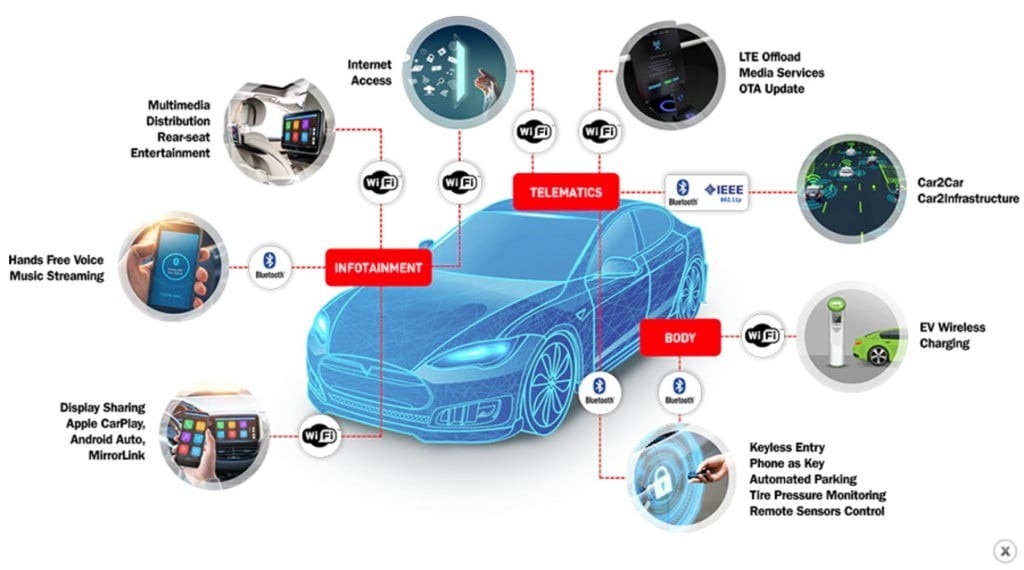In an era where technological advancements are rapidly reshaping industries, the automotive sector stands at the forefront of innovation. With the convergence of cutting-edge technologies like artificial intelligence, electric propulsion, connectivity, and autonomous systems, the automotive landscape is undergoing a profound transformation. This convergence has opened up a plethora of new opportunities for car manufacturers, tech companies, and startups to revolutionize the driving experience and redefine the very concept of automobiles.
1. Electric Propulsion and Sustainable Mobility:
The push for greener alternatives has driven the adoption of electric vehicles (EVs), offering a cleaner and more sustainable mode of transportation. With advancements in battery technology, EVs now boast longer ranges and faster charging times, addressing the limitations that once hindered their widespread adoption. This shift presents immense opportunities for innovation in battery chemistry, charging infrastructure, and energy management systems.
Moreover, electric propulsion has paved the way for new vehicle architectures. Manufacturers can design cars with more flexible interiors, reimagining cabin spaces and pushing the boundaries of design. As the demand for EVs continues to rise, there is a growing need for innovative solutions in battery recycling, second-life applications for used batteries, and grid integration to maximize the benefits of electric mobility.
2. Autonomous Driving and Safety:
Autonomous driving technology has the potential to revolutionize road safety, convenience, and accessibility. Companies are investing heavily in developing self-driving systems that can navigate complex urban environments and highways with minimal human intervention. This technology not only promises to reduce accidents caused by human error but also offers new business models such as autonomous ride-sharing and goods delivery services.
The development of autonomous vehicles requires sophisticated sensors, AI algorithms, and extensive real-world testing. Opportunities lie in creating robust sensor systems that can operate in diverse weather conditions, enhancing AI decision-making to handle unpredictable scenarios, and establishing regulatory frameworks to ensure safe deployment.
3. Connectivity and the Internet of Things (IoT):
Modern cars are evolving into mobile data hubs, connecting to the internet and interacting with other vehicles, infrastructure, and devices. This connectivity offers various benefits, such as real-time traffic updates, remote diagnostics, and over-the-air software updates. As cars become more connected, cybersecurity becomes paramount to prevent potential hacking and data breaches.
New car technology opportunities include developing advanced infotainment systems, leveraging vehicle-to-everything (V2X) communication to enhance safety and traffic management, and creating personalized driving experiences through data analysis and machine learning.
4. Advanced Materials and Manufacturing:
Innovative materials, such as lightweight composites and 3D-printed components, are reshaping the way cars are designed and manufactured. These materials enhance fuel efficiency, improve performance, and enable greater design flexibility. Additive manufacturing, or 3D printing, is revolutionizing the production process by reducing waste and allowing for complex geometries.
The development of new manufacturing techniques, efficient supply chains for sustainable materials, and recycling processes are all areas ripe for technological disruption.
5. User Experience and Human-Machine Interaction:
As vehicles become more automated and connected, the focus on user experience (UX) and human-machine interaction (HMI) becomes crucial. Designing intuitive interfaces, voice recognition systems, and gesture controls that minimize distractions while maximizing user engagement is an ongoing challenge.
In this context, opportunities exist to create seamless and immersive experiences that integrate entertainment, productivity, and safety features. Additionally, as vehicles become more personalized and capable of learning driver preferences, AI-driven personalization becomes a key area of exploration.
Conclusion:
The convergence of electric propulsion, autonomous driving, connectivity, advanced materials, and enhanced user experiences presents an exciting landscape of new car technology opportunities. As established automotive giants, tech innovators, and startups collaborate and compete, the future of automobiles is being shaped by those who dare to reimagine transportation as we know it. The road ahead is promising, and the automotive industry is poised to not only embrace but also drive the technological revolution of our times.



